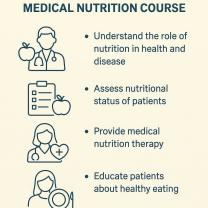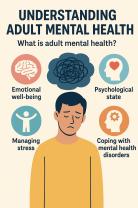What is healthy diet for senior citizens?
A healthy diet for senior citizens is essential to support overall health and well-being. As people age, their nutritional needs can change, so it's important to focus on nutrient-dense foods that provide essential vitamins and minerals while also considering individual dietary restrictions or health conditions. Here are some dietary guidelines for senior citizens:
Balanced Diet: Seniors should aim for a balanced diet that includes a variety of food groups. This should include fruits, vegetables, lean proteins, whole grains, and dairy or dairy alternatives. A balanced diet ensures that the body gets a wide range of essential nutrients.
Adequate Hydration: Dehydration can be a concern for older adults. Make sure to drink plenty of water throughout the day, and include hydrating foods like soups, fruits, and vegetables in your diet.
Fiber-Rich Foods: Foods high in fiber, such as whole grains, legumes, fruits, and vegetables, can aid digestion and help prevent constipation, a common issue among seniors.
Lean Proteins: Include sources of lean protein in your diet, such as poultry, fish, beans, lentils, and tofu. Protein is important for muscle maintenance and repair.
Calcium and Vitamin D: Dairy products or fortified dairy alternatives are good sources of calcium and vitamin D, which are crucial for bone health. Consider supplements if you have trouble meeting these needs through diet alone.
Limit Sodium: Reduce sodium (salt) intake to help manage blood pressure and heart health. Avoid or limit highly processed and salty foods.
Healthy Fats: Choose healthy fats like those found in nuts, seeds, avocados, and olive oil. Limit saturated and trans fats found in fried foods and some baked goods.
Portion Control: Pay attention to portion sizes to avoid overeating. Smaller, more frequent meals may be easier to manage for some seniors.
Limit Added Sugars: Minimize the consumption of sugary foods and drinks, as they can contribute to various health issues, including diabetes and obesity.
Food Safety: Practice food safety to prevent foodborne illnesses. Ensure that foods are stored, prepared, and cooked safely.
Consider Special Diets: Some seniors may have dietary restrictions due to specific health conditions, like diabetes or celiac disease. Consult with a healthcare provider or a registered dietitian for guidance on managing these conditions through diet.
Regular Meals: Try to stick to a regular eating schedule to maintain energy levels and promote good digestion.
Social Eating: Eating with family or friends can promote social interaction and make mealtime more enjoyable.
It's important for seniors to consult with a healthcare provider or registered dietitian to create a personalized nutrition plan that takes into account individual health conditions, medication interactions, and dietary preferences. This can help ensure that their diet supports their unique needs and promotes overall health and well-being.












